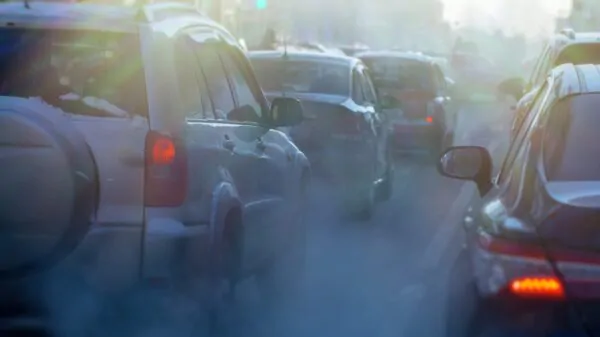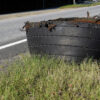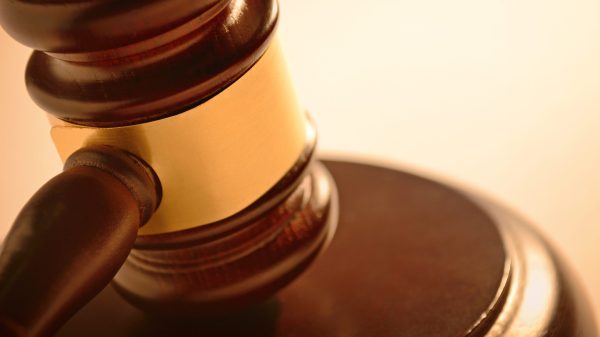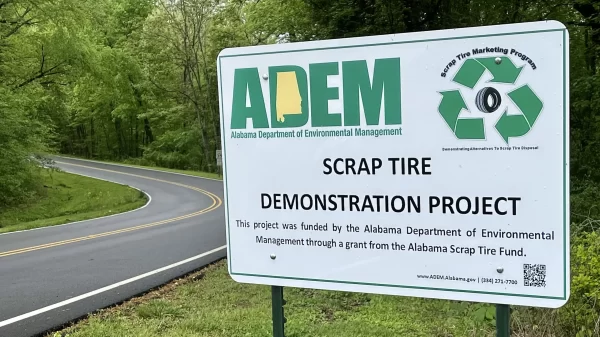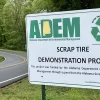|
Getting your Trinity Audio player ready...
|
A landfill fire near Moody has been burning for nearly a month now as authorities struggle to stop the fire, which is raging underground.
The Alabama Department of Environmental Management reiterated Thursday that putting out the fire at the privately operated Environmental Landfill Inc. in St. Clair County remains the overriding priority for state and local agencies responding to the fire.
“Smoke from the fire is a great concern, and the only way to address the smoke is to put out the fire,” ADEM Director Lance LeFleur said. ADEM, along with the Alabama Forestry Commission, is assisting the St. Clair County Commission, the St. Clair County Emergency Management Agency and the Moody Fire Department in an advisory capacity.
The county commission has primary responsibility for dealing with the fire, and ADEM has connected the commission with private companies that have expertise in dealing with underground fires.
“Extinguishing the fire will be difficult because it is burning mostly underground, where water cannot reach it,” LeFleur said. “It also poses extreme hazards to firefighters due to the risks of cave-ins and flare-ups. Plus, the volume of vegetative matter that has been disposed of at the site over the years means there’s an abundance of fuel for the fire. That’s why engaging parties with knowledge and experience in fighting these types of fires, from both an effectiveness and safety standpoint, is critical.”
Once the fire is out, ADEM will take appropriate enforcement actions against the private operator of the site. Such actions could involve air quality impacts and open burning violations.
The site was being used for the disposal of vegetative matter (leaves, limbs, trees, shrubs and similar materials). That use is not a regulated activity (unlike the disposal of household wastes, which is regulated) and is not subject to state regulatory oversight or permits. None of this vegetative matter is considered hazardous waste. The smoke is similar to that associated with a forest fire.
After past ADEM inspections found unauthorized waste materials (non-vegetative) at the site, ADEM issued notices of violation to the operator, and the operator took steps to remove the unauthorized materials in 2018.
While there are rumors that an underground coal seam is burning or contributing to the fire, ADEM said there is no evidence of that and no reason to believe that is the case.
The U.S. Environmental Protection Agency has also been consulted. Unless hazardous materials or regulated wastes are involved, neither the EPA nor ADEM have the authority to take action at this time, the EPA says. The operation of the site is governed solely by local authority.
“Even though ADEM does not have primary responsibility for the fire, the Department is working with all the local and state parties involved,” LeFleur said. “The smoke from this fire is rightly concerning for residents in and around Moody, St. Clair County and even neighboring Jefferson County. We take those concerns and the health and well-being of residents very seriously.
“The most important thing now is to figure out how to extinguish the fire. ADEM will continue to consult with St. Clair officials and provide them whatever assistance we can to accomplish that goal.”













































